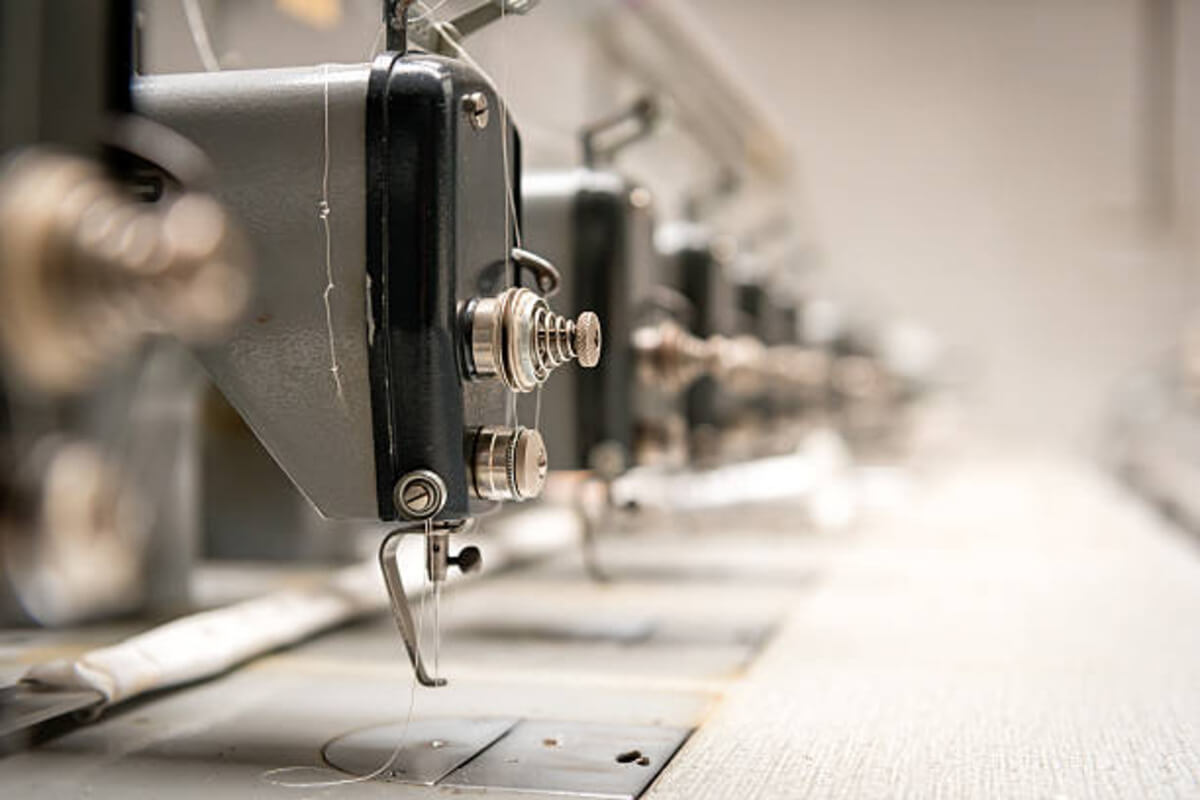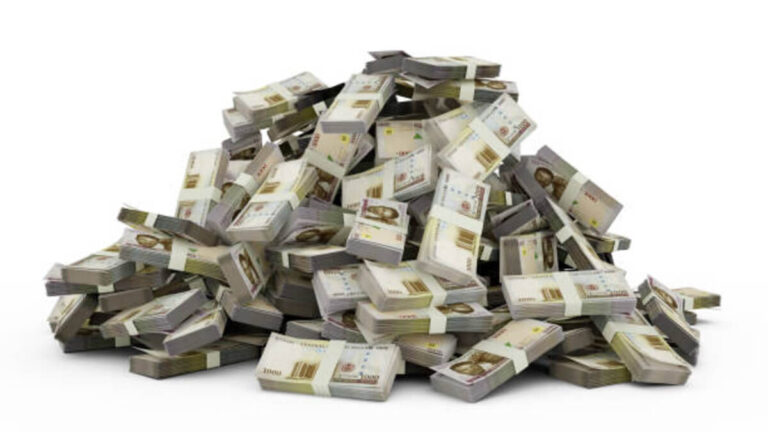Industrial Sewing Machines: Types & Prices
An industrial sewing machine is a heavy-duty machine used for mass-producing clothing and other textiles. It is designed for high-speed, continuous operation and is capable of handling multiple layers of heavy fabrics, as well as thick threads. Industrial sewing machines are typically larger and more powerful than home sewing machines, and they are used in clothing factories, textile manufacturing plants, and other similar environments.
Industrial sewing machines can be computerized or mechanical and come in a variety of styles and designs, including straight stitch, zigzag, overlock, and embroidery machines.
They are designed to perform specific functions such as creating seams, hemming, attaching buttons, and applying decorative elements. Some industrial sewing machines also have specialized attachments for working with leather, denim, and other heavy fabrics.
Advertisement
Also, check out Corporate Gowns for Ladies in Nigeria.
These machines are built to withstand the demands of high-volume production and are an essential tool in the mass production of textiles and clothing.
The Different Types of Industrial Sewing Machines
There are several types of industrial sewing machines, each designed for specific tasks. Some common types include:
- Straight Stitch Machines – These machines produce a simple straight stitch and are used for basic sewing tasks such as attaching seams and hems.
- Zigzag Machines – These machines produce a zigzag stitch and are used for decorative purposes and for attaching elastic.
- Overlock Machines – Overlock machines produce a seam that wraps around the raw edge of the fabric, providing a finished look and preventing fraying.
- Blindstitch Machines – Blindstitch machines produce an invisible stitch on the underside of the fabric, which is ideal for hemming pants and skirts.
- Buttonhole Machines – These machines are used to create precise buttonholes in a single step.
- Embroidery Machines – These machines are used to produce decorative designs and patterns on fabric using a programmed sequence of stitches.
- Special Purpose Machines – There are also specialized industrial sewing machines designed for specific tasks, such as attaching zippers, making bags, or sewing heavy-duty materials like leather or canvas.
Each type of industrial sewing machine has its own unique set of features, capabilities, and attachments to meet the demands of specific sewing tasks.
Advertisement
Pros and Cons of an Industrial Sewing Machine
Pros of Industrial Sewing Machines
- Speed – Industrial sewing machines can sew at much faster speeds than domestic machines, making them ideal for high-volume production.
- Durability – Industrial sewing machines are built to last and can withstand the demands of continuous, high-speed operation.
- Power – Industrial machines are more powerful than domestic machines, making them better suited for handling heavy fabrics and thick threads.
- Versatility – There are many types of industrial sewing machines, each designed for specific tasks, providing versatility for a wide range of sewing projects.
- Consistency – Industrial machines produce a consistent and accurate stitch, ensuring the quality and longevity of the finished product.
Cons of Industrial Sewing Machines
- Cost – Industrial sewing machines are typically more expensive than domestic machines and can be a significant investment.
- Size – Industrial sewing machines are typically larger and more cumbersome than domestic machines, which can make them difficult to move and store.
- Skill Level – Operating an industrial sewing machine requires a certain level of skill and training, which can be a barrier for some users.
- Maintenance – Industrial machines require regular maintenance and repairs to keep them functioning properly, which can be time-consuming and costly.
- Noise – Industrial sewing machines can be loud and produce a significant amount of noise, which can be a challenge in shared workspaces.
How to Use an Industrial Sewing Machine?
Using an industrial sewing machine requires some training and practice. Here are some steps to get started:
- Read the manual – Before using an industrial sewing machine, it is important to read the manual and become familiar with the machine’s features and functions.
- Set up the machine – This includes installing the thread, adjusting the needle, and setting the stitch length and tension.
- Prepare the fabric – Cut the fabric to size and prepare the edges to prevent fraying.
- Start sewing – Place the fabric under the needle, and begin sewing slowly, gradually increasing speed as you become more comfortable with the machine.
- Adjust as needed – Adjust the stitch length, tension, and needle position as needed for different types of fabric and sewing tasks.
- Maintain the machine – Regular cleaning and oiling of the machine can help ensure that it continues to function properly.
It is also important to use the correct needle and thread for each type of fabric, as well as to wear protective equipment, such as gloves and eye protection when using an industrial sewing machine. It’s always best to start with a simple project and gradually work your way up to more complex projects as you gain experience.
Price of Industrial Sewing Machines in Nigeria
The price of an industrial sewing machine in Nigeria can vary widely depending on the brand, model, and features. On average, a basic industrial sewing machine can cost anywhere from NGN 50,000 to NGN 100,000, while a high-end model with advanced features can cost upwards of NGN 300,000 or more.
It’s important to keep in mind that the initial cost of the machine is just one factor to consider. Other factors, such as maintenance costs, operating costs, and the machine’s reliability, should also be taken into account when evaluating the overall cost of ownership.
Additionally, purchasing a machine from a reputable dealer who offers warranty and support can help ensure that the machine is reliable and that any issues can be resolved quickly and efficiently.
Where to buy the industrial sewing machine in Nigeria
There are several places where you can buy industrial sewing machines in Nigeria:
- Online Marketplaces – Websites like Jumia and Konga offer a variety of sewing machines for sale, including industrial models.
- Specialty Stores – There are stores that specialize in selling sewing machines and related equipment, including industrial models. These stores can be found in cities such as Lagos, Abuja, and Port Harcourt.
- Sewing Machine Dealers – There are dealers who specialize in selling industrial sewing machines and related equipment. They can be found in major cities across the country.
- Direct from Manufacturer – Some manufacturers have offices or representatives in Nigeria, from whom you can purchase an industrial sewing machine directly.
It’s important to research the options and compare prices and features before making a purchase to ensure that you get the best value for your money.
It’s also a good idea to ask for recommendations from friends or colleagues in the sewing industry or to visit a store or dealer in person to see the machines and try them out before making a purchase.
Final Notes on Industrial Sewing Machines
In conclusion, industrial sewing machines are specialized machines designed for high-volume production and heavy-duty sewing tasks. They are more powerful and durable than domestic sewing machines, but also more expensive and require a higher level of skill to operate.
When purchasing an industrial sewing machine, it’s important to consider factors such as cost, versatility, and reliability. It’s also a good idea to research different brands and models, compare prices, and speak with experts in the field to determine the best machine for your specific needs.
Whether you’re looking to start a clothing production business or simply need a machine capable of handling heavy-duty sewing projects, an industrial sewing machine can be a valuable investment.
Before you go, check out Traditional Fabrics in Nigeria.







One Comment
Comments are closed.